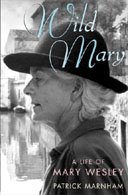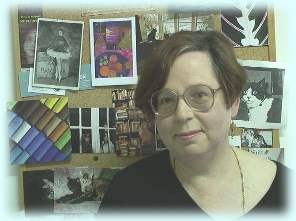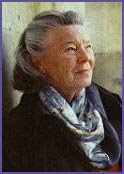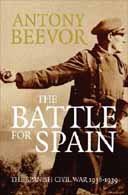£18,000 bursary for a would-be writer
Also in today's blog
Mary Wesley biography
New novel by Adèle Geras
The Shell Seekers
The Battle for Spain
Letter to The Bookseller
£18,000 bursary
As you may have read elsewhere, a company called Medical Case Note Assessment Ltd is offering an £18,000 bursary "to allow a promising writer to dedicate up to 12 months writing a work of fiction. The Bursary is open to novices as well as experienced writers. Its aim is to provide the successful candidate with the financial assistance to allow time for writing, with a view to completing the novel within 12 months. You can write about any subject as long as it is substantially a work of imagination and fiction and you retain full copyright over your work. Please have a read of our General Guidance and Terms & Conditions."
No doubt you fell back aghast on reading the opening words of the last sentence. "Listen to this!" I exclaimed to Mr Bookworm, before reading out that horrible "Please have a read of…"
After I had emailed Michelle Sheppard, the Bursary Administrator, she replied, "Thanks for flagging up the error (I doubt it's the only one there)… If you have a website/link I would be happy to include it in our 'links' page; just send it along and I'll pop it in when I edit the page later this afternoon."
To which I replied, "Kind of you to offer…but I don't have a site, only a blog which is rather anti creative writing courses so not really suitable for inclusion on your links page."
MCNA state "We have established the Bursary as a contribution to the Arts and in particular to creative writing."
Cynics may suspect that they wanted to publicise their organisation - nothing wrong with that -and, looking around for a bandwagon, decided that the booming "creative writing" industry would be perfect for their purpose.
In my view, promising writers don't need £18,000 handouts to get them going. Storytelling is an instinct some people are born with and they start developing their gift very early in life. If, somehow, they get stuck in an uncongenial day job, they write late at night or early in the morning.
Mary Wesley biography
Wild Mary : A Life of Mary Wesley by Patrick Marnham [Chatto & Windus £18.99] reveals that in 1981 Mary received a letter from her agent, the late Tessa Sayle, to tell her that Jumping the Queue and a children's novel had both been rejected by a further six publishers. Wesley then began a campaign to sell her books herself. In July 1982 she heard that "After thirty-five years of writing and rejection her first adult novel had been accepted."

In the light of her subsequent success, today it seems extraordinary that so many publishers turned down her novel.
I received the biography for my birthday on Tuesday and have only had time to dip into it. One of the dips, on page 222, revealed that the black hat worn in the often-used photo of Wesley on a bridge in Venice, was "a curé's wide-brimmed black felt fedora" bought in Venice.
Another dip, on page 79, reads "Mary took a taxi to Paddington Station, said goodbye to Heinz on the platform and cried for five hours on the train to Penzance." Sounds an impossibility, especially for someone brought up in the days when stiff upper lips were the norm.
More about this book later when I've had time to read it properly.
Made in Heaven by Adèle Geras
On the jacket of Adèle Geras's third novel for adults [she has published 80 books for children and young adults] we read "Everyone loves a wedding. But not all marriages are made in heaven."
 I have been in occasional touch with Adèle since writing about her in The Bookseller in February 2003. But I was astonished to find my name in the acknowledgments of her new book. When I queried this, Adèle replied, "You answered a request of mine to write an email about your wedding. Don't you recall? I was very grateful to all who answered."
I have been in occasional touch with Adèle since writing about her in The Bookseller in February 2003. But I was astonished to find my name in the acknowledgments of her new book. When I queried this, Adèle replied, "You answered a request of mine to write an email about your wedding. Don't you recall? I was very grateful to all who answered."A search has failed to produce whatever I wrote about my wedding which differed from some people's nuptials in costing next to nothing and being the first day of a lifetime of happiness.
But although a marriage made in heaven is one of life's best gifts, it's not an advantage when reading 21st century novels which tend to be full of rocky partnerships and infidelity rather than ideally suited husbands and wives who would never think of jumping into bed with anyone but each other.
As you may have gathered from previous blogs, in recent years I've found it increasingly hard to identify with characters who make a hash of their love lives for want of elementary common sense.
Reading Adèle's new book, I wondered if she had been persuaded by her editor to intensify the emotional agonies her characters go through. But then I spent nearly 18 minutes listening, riveted, to the podcast of a talk she gave at a seminar on promoting reading for pleasure in secondary schools. Follow the link, scroll not quite half way down the screen and you'll see the jacket of her novel Ithaka, longlisted for this year's Carnegie Medal.
In her talk, Adèle stresses that she writes "entirely to please myself". The talk made me check the online catalogue of the Guille-Alles Public Library [inspired by a library in New York as you'll see if you click the link] where I found that Ithaka was on the Junior Fiction shelves. But when I dashed off to borrow it, it was not to be found. One of the library's ever-helpful staff, with the lovely Guernsey name of Mrs Le Pelley, tracked it down for me, plus a Collins Modern Classics copy of The Girls in the Velvet Frame first published in 1978.
In a Postscript at the back of this book, Adèle Geras writes - "It's not always easy, particularly after a long time has elapsed, to remember exactly how a certain book came to be written, but this novel was my first, and I recall everything about its beginnings clearly."
It's odd that The Girls in the Velvet Frame and Ithaka are bang on my wavelength, but Made in Heaven is not. The writing is excellent, it's the theme I have problems with, although I have to admit it's all very true to modern life and I'm sure the under-50s will lap it up. But whether the happily-married over-50s will be equally enthused, remains to be seen. I shall put it aside to re-read when I've recovered from the surfeit of fictional adulteries I've suffered from recently.
By the way, the newsletters at Adele's website are well worth reading. There are 19 of them, and I'm working my way through the lot.
The Shell Seekers
On Tuesday evening we watched the 1989 movie version of The Shell Seekers with Angela Lansbury playing Penelope Keeling. It was a terrible disappointment to me, but Mr Bookworm, who hasn't read the novel, said he enjoyed it.

I understand there is a TV version with an actor called Alistair Mackenzie playing the part of Richard, the love of Penelope's life in the novel but a bit part in the movie. Since he was reduced to a bit part, why bother to change him from an Englishman to an American? I wondered.
I've always regretted seeing the movie of Gone With The Wind before reading the book because it's impossible to erase the actors from one's mind and establish one's own idea of how the characters look. Seeing Angela Lansbury in the film hasn't altered my private image of Penelope which is actually pretty close to the way the book's author, Rosamunde Pilcher, looks. I suppose this came about because both author and character were Wrens as young women, although the course of their later lives was very different. Anyway The Shell Seekers is a terrific novel which I strongly recommend to anyone to hasn't had the pleasure of reading it. Mr Bookworm, who has been both a sailor and a soldier, might enjoy it, but he's just about to tackle Anthony Beevor's The Battle For Spain, about the Spanish Civil War from 1936-1939.
The Battle for Spain
 This looks rather heavy-going to me. I checked the index to read what the author has to say about La Pasionaria whose real name was Dolores Ibárruri and Federico García Lorca, the poet who was shot.
This looks rather heavy-going to me. I checked the index to read what the author has to say about La Pasionaria whose real name was Dolores Ibárruri and Federico García Lorca, the poet who was shot.Of the latter, Beevor writes - "H.G.Wells, the president of PEN, demanded details of the fate of
Bookworld España for expat bookworms
Those of you who read The Bookseller may have seen my letter to the Editor in this week's issue. The heading "The chain in Spain" reminded me of my newspaper days and a sub-editor who was brilliant at headings.
The letter read -
"In his Opinion column (16th June), Anthony Cheetham wrote: "…there isn't even a decent chain of bookshops on the continent." Bookworld España, founded by an Englishman, James Ross, has eight bookshops on the Costa del Sol and Costa Blanca, and supplies English books to more than 100 other outlets as well as to 70 national and international schools. Its twice-a-year mail order catalogue is a boon to expats who live in the backwoods of Spain, as I do in winter."
